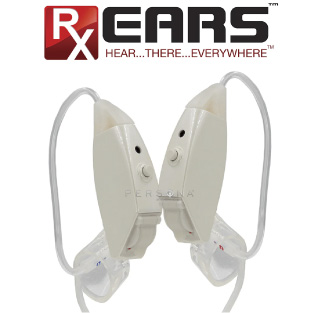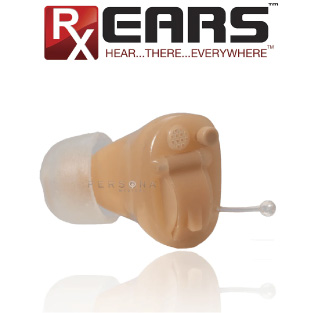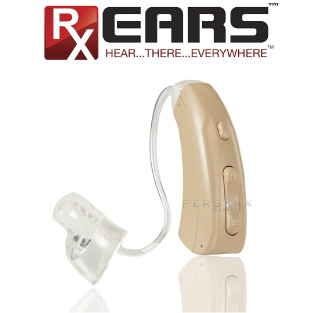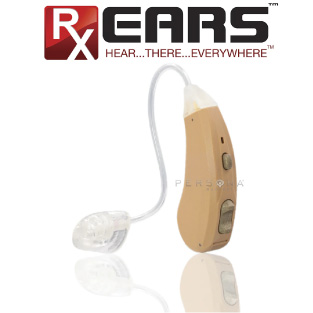Over-the-Counter (OTC) Hearing Aids
Over-the-Counter (OTC) Hearing Aids
Realo Drugs is committed to providing our customers with exceptional care and service. That's why we are excited to announce the availability of affordable Over-the-Counter (OTC) hearing aids at all of our locations. OTC hearing aids are a convenient option for individuals with mild to moderate hearing loss, allowing you to purchase them without a prescription or visit to the audiologist. Our knowledgeable staff understands the importance of hearing and will assist you in finding the right OTC hearing aid that fits your specific needs and budget.
What are OTC hearing aids?
OTC (Over-the-Counter) hearing aids are medical devices designed to amplify sound for individuals with mild to moderate hearing loss. These devices are available without a prescription and can be purchased directly by consumers at any Realo Drugs location for personal use.
Featured Products
At Realo Drugs, we are proud to offer a wide range of affordable OTC (Over-the-Counter) hearing aids. With our convenient same day or next day pick up options at all locations, you can start improving your hearing right away. Our OTC hearing aids are crafted with medical grade quality, ensuring that you receive reliable and durable devices. Our hearing aid products also guarantee 100% tested technology, so you can trust their effectiveness and performance. With modern design and construction, our OTC hearing aids provide discreet and comfortable usage all day long. Rest assured, our OTC hearing aids are FDA registered, meeting all safety and quality standards. Experience the benefits of our advanced OTC hearing aids available at Realo Drugs today.

Model RxS
- Digital processing
- Speech enhancement
- Directional microphones
- Four listening levels
- Noise reduction
- Feedback cancellation
- 10A Battery

Model Rxi
- Very discreet miniaturized design
- Digital processing
- Premium noise reduction
- Omni directional microphone
- Adaptive feedback cancellation
- 10A battery

Model Rx4
- Digital processing
- Adaptive noise reduction
- Omni directional microphone
- 16 processing channels and bands
- A312 battery

Model Rx8
- Bluetooth compatible (great for cell phone conversations)
- Speech enhancement
- Adaptive noise reduction
- Directional microphones
- Four listening programs
- Optional companion microphone
- A312 battery
Frequently Asked Questions about OTC Hearing Aids
No, you do not need a prescription to purchase OTC hearing aids. Unlike traditional hearing aids that require a prescription and fitting from a healthcare professional, OTC hearing aids are available directly to our customers without the need for a doctor's visit or referral. This makes OTC hearing aids a convenient option for individuals with mild to moderate hearing loss who are looking to improve their hearing abilities without the hassle of appointments and additional costs.
However, it is important to note that while a prescription is not required, it is still recommended to have a comprehensive hearing evaluation to determine the extent of your hearing loss and to rule out any underlying medical conditions that may require further attention. Consulting with a hearing healthcare professional or audiologist can provide valuable insights and guidance on the appropriate use of OTC hearing aids based on your specific hearing needs.
OTC hearing aids work by collecting sound from the environment through a microphone, amplifying it, and delivering the amplified sound to the user's ear. They are typically available in various styles, including in-the-ear, behind-the-ear, and in-the-canal, offering different levels of comfort and discreetness.
OTC hearing aids are suitable for individuals with mild to moderate hearing loss. They may be a convenient solution for those who experience difficulty hearing conversations, television, or other everyday sounds. However, it is important to have a comprehensive hearing evaluation by a qualified audiologist or healthcare professional to determine the extent of your hearing loss and the appropriateness of OTC hearing aids for your specific needs.
When it comes to infants and young children with hearing loss, it is important to seek professional guidance and support. OTC hearing aids are generally not recommended for children as their hearing needs may require more specialized attention. The website hearingfirst.org offers valuable resources and information specifically for parents of children with hearing loss. They provide guidance on early intervention strategies, the importance of suitable hearing devices, and the benefits of Listening and Spoken Language (LSL) techniques to help children with hearing loss develop listening and speech skills. It is highly recommended to consult with hearing healthcare professionals and refer to reputable sources like hearingfirst.org to ensure that children with hearing loss receive appropriate care and interventions tailored to their unique needs.
OTC hearing aids differ from traditional hearing aids in terms of accessibility, cost, and regulation. OTC hearing aids are available for purchase without a prescription, making them more accessible to individuals. They also tend to be more affordable compared to traditional hearing aids. Additionally, OTC hearing aids are regulated by the FDA (Food and Drug Administration) to ensure their safety and effectiveness.
OTC hearing aids are primarily designed for individuals with mild to moderate hearing loss. If you have severe or profound hearing loss, it is recommended to consult with a hearing healthcare professional who can assess your specific hearing needs and recommend appropriate treatment options.
OTC hearing aids are generally designed to be self-fitted and adjusted by the user. They often come with user-friendly instructions to help individuals modify settings and customize their hearing experience. However, it is important to familiarize yourself with the manufacturer's guidelines and consult with a healthcare professional if you have any concerns or difficulties during the fitting or adjustment process.
Currently, most insurance plans do not cover OTC hearing aids. However, it is recommended to check with your specific insurance provider to determine if any coverage or reimbursement options are available.
Remember, for individuals with more significant hearing loss or complex hearing needs, it is crucial to consult with a hearing healthcare professional to receive a comprehensive evaluation and appropriate guidance on the best hearing solution for you.
Note: The information provided here is general and should not substitute professional medical advice. It is always recommended to consult with a qualified healthcare professional or audiologist for personalized guidance and recommendations regarding hearing loss and hearing aid options.